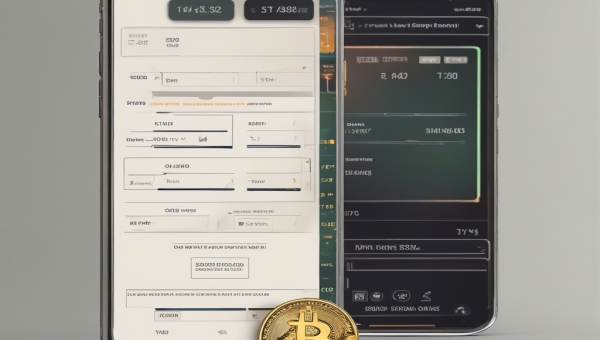Transaction Time
Transaction Time
Understanding Transaction Time in Option Trading with Cryptocurrencies
One of the defining features of option trading with cryptocurrencies is the transaction time. As a fundamental term in cryptocurrency trading, understanding the transaction time is crucial for both beginners and seasoned traders. Let's delve into what this term means.
What is Transaction Time?
In the realm of cryptocurrency, transaction time refers to the period taken for a transaction to be confirmed and finalized on a blockchain network. In simpler terms, it's the time between when you press 'send' on your crypto transfer and when the receiver confirms that they've got your funds.
The Importance of Transaction Time
Transaction time is crucial in options trading with cryptocurrencies for a number of reasons. Firstly, the speed of transaction impacts your trading actions. Faced with fluctuating crypto prices, a delay in transaction time could mean buying or selling at a price that is worse than you intended. Secondly, some cryptocurrencies have shorter transaction times, which is an attractive feature for many traders.
Factors Influencing Transaction Time in Crypto Option Trading
Several factors can affect the transaction time in crypto option trading. These include the blockchain's congestion level, the transaction fee (higher fees can prioritize your transaction), and the cryptocurrency used (each has different transaction speeds).
Minimizing Transaction Time in Option Trading with Cryptocurrencies
While it's not possible to control all factors that might slow the transaction time, some strategies can help minimize the delay. Choosing a crypto with faster transaction speeds, like Ethereum or Litecoin, may be beneficial. Similarly, setting a competitive transaction fee can improve the chances of quicker processing times.
By understanding and making a calculated consideration of transaction time, traders can make more strategic and timely investment decisions in option trading with cryptocurrencies.
Blog Posts with the term: Transaction Time

The article discusses the rapid evolution of smart contracts, highlighting Ethereum's pioneering role and its limitations such as scalability issues, high transaction fees, energy consumption, complexity for developers, and security vulnerabilities. It then explores alternatives like BNB Smart Chain with...

The article discusses the comparison between Bitcoin and Ethereum as investment options in the world of cryptocurrencies. It highlights the unique features and potential of each cryptocurrency and provides insights into their market dominance, security, scalability, and utility. The article...

The Bitcoin Mempool is where all transaction data accumulates before miners confirm them, and it is an indicator of how congested the Bitcoin network is. Understanding the dynamics of the Mempool can help options traders predict transaction times and fees,...

Decentralized finance (DeFi) is revolutionizing the finance world, with Ethereum leading the charge. Ethereum's unique features, such as its open and versatile blockchain platform, transaction speed, and security, make it the go-to platform for DeFi applications. The growing adoption of...

Cryptocurrencies are digital or virtual currencies that use cryptography for security and operate on decentralized networks based on blockchain technology, offering a secure and private way to conduct transactions. This guide explains the basics of cryptocurrencies, how they work using...

Ethereum, a dominant force in the blockchain ecosystem due to its support for smart contracts and decentralized applications (dApps), faces competition from emerging blockchains like Solana, Cardano, and Polkadot that aim to address Ethereum's limitations such as high transaction fees...

The article introduces key examples of cryptocurrencies, highlighting their unique features and uses. It covers Bitcoin's pioneering role, Ethereum's smart contracts, Ripple's fast transactions, Litecoin’s efficiency improvements over Bitcoin, Bitcoin Cash’s scalability solutions, and Cardano’s research-driven approach to blockchain development....

The article discusses the Taproot upgrade in Bitcoin, which introduces privacy, scalability, and functionality improvements to the network. It explores the implications of the upgrade for options traders, including increased transaction efficiency, privacy, and the potential for new trading opportunities...

Central Bank Digital Currencies (CBDCs) have the potential to revolutionize options trading by providing faster settlement times, increased transparency, and improved security. While CBDCs offer numerous benefits, traders must also be aware of the associated risks, such as regulatory changes,...

